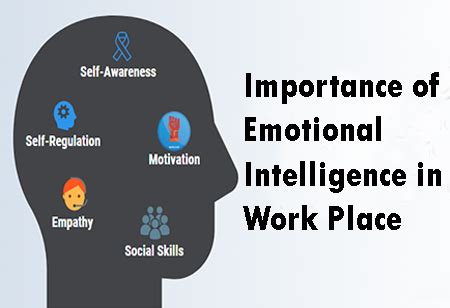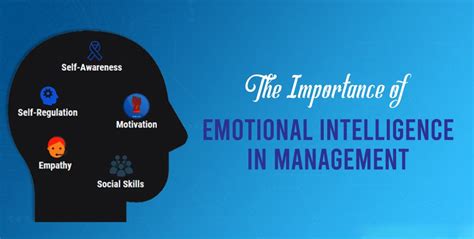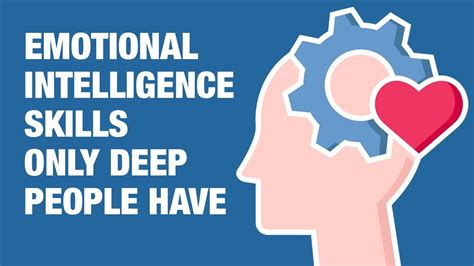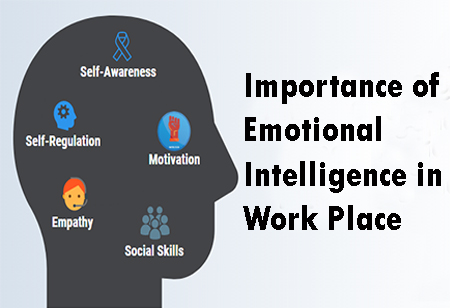In today’s fast-paced and interconnected workplace, the ability to navigate emotions effectively has become a crucial skill for professional success. Emotional intelligence (EI), often referred to as the ability to understand and manage your own emotions, as well as those of others, plays a significant role in fostering a positive work environment and enhancing leadership qualities. This article explores the concept of emotional intelligence, its importance in the workplace, and how it can be developed to improve communication, teamwork, and leadership. By understanding and applying emotional intelligence, individuals can create more collaborative and productive work environments, leading to greater overall success for both employees and organizations.
Let’s investigate this topic extensively with rosawblog.com
1. Introduction
In the modern workplace, technical skills alone are no longer sufficient for success. As organizations increasingly recognize the value of interpersonal dynamics, emotional intelligence (EI) has emerged as a critical component of effective teamwork and leadership. Emotional intelligence refers to the capacity to recognize, understand, manage, and influence emotions—both your own and those of others. This skill set is particularly valuable in professional settings, where effective communication, empathy, and conflict resolution are essential for a productive and harmonious work environment.
This article delves into the concept of emotional intelligence, emphasizing its growing importance in the workplace. We will explore what emotional intelligence entails, why it matters in professional settings, and how individuals can develop this vital skill to enhance their career prospects. Additionally, we will examine the link between emotional intelligence and leadership, illustrating how leaders with high emotional intelligence can inspire and motivate their teams. Through case studies and real-world examples, we will demonstrate the tangible benefits of cultivating emotional intelligence in the workplace.

2. What is Emotional Intelligence?
Emotional intelligence (EI) is the ability to recognize, understand, and manage our own emotions while also being attuned to the emotions of others. Unlike cognitive intelligence, which is measured by IQ, emotional intelligence focuses on how effectively individuals handle emotional information and navigate social complexities. The concept was popularized by psychologist Daniel Goleman, who identified five key components of emotional intelligence: self-awareness, self-regulation, motivation, empathy, and social skills.
Self-awareness involves understanding one’s own emotions and how they impact thoughts and behavior. Self-regulation is the ability to control impulsive feelings and behaviors, managing emotions in healthy ways. Motivation refers to the inner drive to pursue goals with energy and persistence. Empathy, a cornerstone of EI, involves understanding the emotions of others and responding with compassion. Finally, social skills encompass the ability to build and maintain healthy relationships through effective communication and conflict management.
In the workplace, emotional intelligence enables individuals to work more effectively with others, manage stress, and make better decisions. It is increasingly seen as a vital skill for success in today’s professional environments.

3. Importance of Emotional Intelligence in the Workplace
Emotional intelligence (EI) is a crucial factor in fostering a positive and productive work environment. In the workplace, individuals with high emotional intelligence are better equipped to handle interpersonal relationships judiciously and empathetically, leading to stronger collaboration and communication among team members. This capability is essential in managing conflicts, reducing stress, and creating a culture of mutual respect.
Employees with well-developed emotional intelligence can recognize and understand the emotions of their colleagues, allowing them to respond appropriately in various situations. This understanding not only helps in building stronger relationships but also contributes to more effective teamwork, as emotionally intelligent individuals are more likely to support and motivate their peers. In leadership roles, emotional intelligence becomes even more critical, as leaders must inspire and guide their teams while managing the emotional dynamics of the workplace.
Furthermore, emotional intelligence plays a significant role in decision-making. By being attuned to both their own emotions and those of others, individuals can make more informed and balanced decisions, considering both logical and emotional factors. In today’s complex and fast-paced work environments, emotional intelligence is not just an asset—it’s a necessity for maintaining a healthy, dynamic, and successful workplace.

4. How to Develop Emotional Intelligence
Developing emotional intelligence (EI) is a continuous process that involves self-reflection, practice, and a commitment to personal growth. The first step in enhancing EI is cultivating self-awareness. This means regularly examining your emotions and understanding how they influence your thoughts and actions. Mindfulness practices, such as meditation or journaling, can help increase this awareness by encouraging you to stay present and recognize your emotional triggers.
Self-regulation is another critical component of emotional intelligence. To improve in this area, practice pausing before reacting to emotionally charged situations. This pause allows you to assess your emotions and choose a more constructive response. Techniques such as deep breathing or counting to ten can be effective in managing immediate reactions.
Empathy, the ability to understand and share the feelings of others, can be developed by actively listening to colleagues and considering their perspectives before responding. Engaging in conversations with the intent to understand, rather than just to reply, can significantly enhance empathetic abilities.
Finally, improving social skills, such as effective communication and conflict resolution, is essential for developing EI. Regularly seeking feedback from others, participating in team activities, and practicing active listening can all contribute to stronger emotional intelligence in the workplace.
5. Emotional Intelligence and Leadership
Emotional intelligence (EI) is a cornerstone of effective leadership. Leaders with high emotional intelligence are not only adept at managing their own emotions but are also skilled in understanding and influencing the emotions of their team members. This ability is crucial for fostering a positive work environment where employees feel valued, motivated, and supported.
One of the key ways emotional intelligence enhances leadership is through improved communication. Leaders who are emotionally intelligent can convey their messages with empathy and clarity, ensuring that their team understands both the content and the emotional context of their communication. This skill is particularly important in times of change or crisis, where leaders must navigate complex emotions and maintain morale.
Empathy, a core component of EI, allows leaders to connect with their team members on a deeper level, fostering trust and loyalty. By showing genuine concern for their employees’ well-being, emotionally intelligent leaders can inspire greater commitment and engagement from their team.
Moreover, leaders with high emotional intelligence are better equipped to manage conflicts and resolve disputes. They can approach disagreements with a calm and balanced perspective, facilitating solutions that satisfy all parties involved. In essence, emotional intelligence is not just a beneficial trait for leaders—it is essential for leading effectively in today’s dynamic workplace.
6. Case Studies/Examples
To illustrate the impact of emotional intelligence (EI) in the workplace, consider the case of a technology company that experienced significant growth and internal change. During a major reorganization, a team leader with high emotional intelligence played a crucial role in maintaining team cohesion. Understanding the stress and uncertainty faced by team members, the leader held regular one-on-one meetings to address concerns and provide support. By actively listening and responding empathetically, the leader helped to ease anxiety, leading to a smoother transition and continued high performance from the team.
Another example involves a healthcare organization where a department head used emotional intelligence to improve patient care. Recognizing that staff morale was low due to high workloads, the leader initiated open forums for staff to express their frustrations and suggest improvements. By validating their feelings and involving them in decision-making, the leader fostered a sense of ownership and teamwork. This approach not only improved the work environment but also enhanced the quality of care provided to patients.
These examples demonstrate how leaders with high emotional intelligence can positively influence their teams, leading to better outcomes in both employee satisfaction and organizational success.
7. Conclusion
Emotional intelligence (EI) is a vital skill that significantly impacts workplace dynamics and leadership effectiveness. By understanding and managing emotions—both our own and those of others—employees and leaders can foster a more collaborative and supportive work environment. High emotional intelligence enhances communication, strengthens relationships, and improves decision-making, all of which contribute to a more productive and harmonious workplace.
Developing emotional intelligence involves continuous self-reflection, practicing empathy, and honing social skills. Leaders who excel in EI are better equipped to navigate complex interpersonal interactions, manage stress, and inspire their teams, leading to higher engagement and improved organizational outcomes.
The case studies highlighted demonstrate the tangible benefits of emotional intelligence in action, underscoring its importance in achieving both personal and professional success. As workplaces become increasingly collaborative and dynamic, investing in emotional intelligence is not just an asset—it’s essential for thriving in today’s professional landscape. Embracing and cultivating EI can lead to more effective leadership and a more positive, productive work environment.
rosawblog.com
